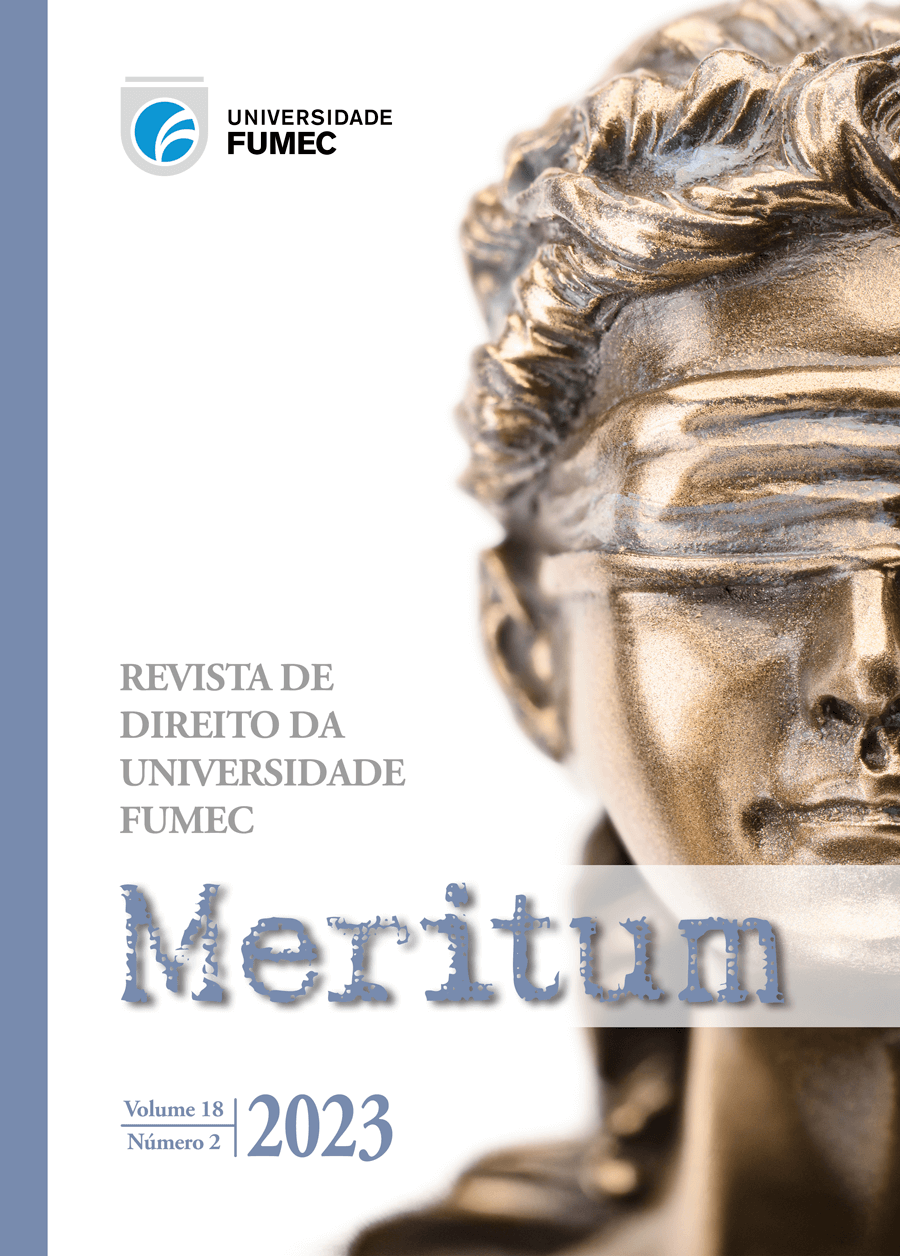TEORIA DAS ATIVIDADES ROTINEIRAS E INCIDÊNCIA CRIMINAL
ANÁLISE DO IMPACTO DA PANDEMIA DE CORONAVÍRUS NO CRIME EM BELO HORIZONTE
DOI:
https://doi.org/10.46560/meritum.v18i2.9331Resumen
A eclosão do COVID-19 fomentou o estudo empírico do fenômeno criminal, fazendo da pandemia, embora trágica, um grande experimento criminológico. Todavia, no Brasil, o assunto ainda não encontrou a devida repercussão no meio acadêmico, apesar de sua relevância tanto prática quanto teórica. O estudo pretende preencher tal lacuna e engajar no debate internacional, fornecendo análises inéditas acerca do impacto das medidas para conter o avanço da pandemia na incidência criminal na cidade de Belo Horizonte. Para o levantamento dos dados primários, foram utilizados os registros realizados pela Polícia Militar, dos crimes de furtos, roubos e homicídios, de 2016 a 2021, nas modalidades tentadas e consumadas. As séries históricas dos crimes foram compatibilizadas com as semanas epidemiológicas, conforme o calendário da Organização Mundial de Saúde. Os dados relativos à variação relativa na mobilidade de pessoas foram obtidos através do Google Mobility. Os modelos apresentaram R2 ajustado de 0,7983 para furtos, 0,7943 para roubos e 0,1528 para homicídios. Os resultados indicam que, embora a teoria das atividades de rotina proponha a correlação entre mobilidade urbana e os crimes de furto, roubo e homicídios, há significância estatística para os dois primeiros, mas não para o crime de homicídios.
Descargas
Publicado
Número
Sección
Licencia
Autores que publicam nesta revista concordam com os seguintes termos:
- Autores mantém os direitos autorais e concedem à revista o direito de primeira publicação, com o trabalho simultaneamente licenciado sob a Licença Creative Commons Attribution que permite o compartilhamento do trabalho com reconhecimento da autoria e publicação inicial nesta revista;
- Autores têm autorização para assumir contratos adicionais separadamente, para distribuição não-exclusiva da versão do trabalho publicada nesta revista (ex.: publicar em repositório institucional ou como capítulo de livro), com reconhecimento de autoria e publicação inicial nesta revista;
- Autores têm permissão e são estimulados a publicar e distribuir seu trabalho online (ex.: em repositórios institucionais ou na sua página pessoal) a qualquer ponto antes ou durante o processo editorial, já que isso pode gerar alterações produtivas, bem como aumentar o impacto e a citação do trabalho publicado (Veja O Efeito do Acesso Livre).






